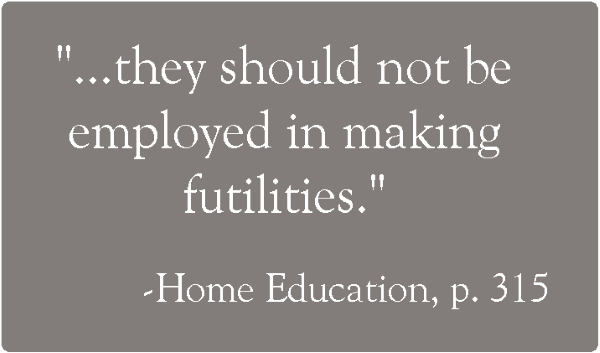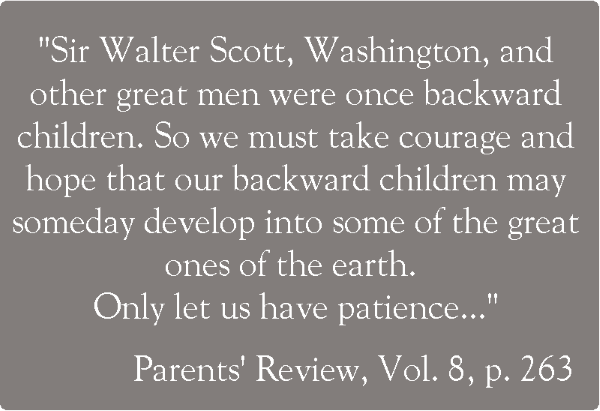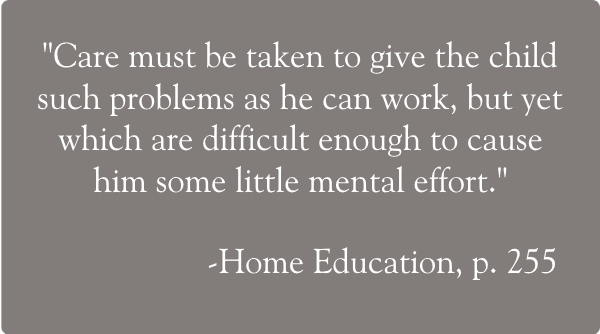
This Charlotte Mason podcast explores the upper reaches of the hike up the math mountain. If teaching algebra and geometry are daunting to you currently, or for the future, please enjoy the first of this two-part interview with Richele Baburina, a fellow CM researcher and practitioner who has explored the wondrous reaches of mathematics as a living subject in the Mason feast.
Listen Now:

Principles 16-19 from the Preface to the Home Education Series:
16. There are two guides to moral and intellectual self-management to offer to children, which we may call ‘the way of the will’ and ‘the way of the reason.’
17. The way of the will: Children should be taught, (a) to distinguish between ‘I want’ and ‘I will.’ (b) That the way to will effectively is to turn our thoughts from that which we desire but do not will. (c) That the best way to turn our thoughts is to think of or do some quite different thing, entertaining or interesting. (d) That after a little rest in this way, the will returns to its work with new vigour. (This adjunct of the will is familiar to us as diversion, whose office it is to ease us for a time from will effort, that we may ‘will’ again with added power. The use of suggestion as an aid to the will is to be deprecated, as tending to stultify and stereotype character, It would seem that spontaneity is a condition of development, and that human nature needs the discipline of failure as well as of success.)
18. The way of reason: We teach children, too, not to ‘lean (too confidently) to their own understanding’; because the function of reason is to give logical demonstration (a) of mathematical truth, (b) of an initial idea, accepted by the will. In the former case, reason is, practically, an infallible guide, but in the latter, it is not always a safe one; for, whether that idea be right or wrong, reason will confirm it by irrefragable proofs.
19. Therefore, children should be taught, as they become mature enough to understand such teaching, that the chief responsibility which rests on them as persons is the acceptance or rejection of ideas. To help them in this choice we give them principles of conduct, and a wide range of the knowledge fitted to them. These principles should save children from some of the loose thinking and heedless action which cause most of us to live at a lower level than we need.

If you would like to study along with us, here are some passages from The Home Education Series and other Parent’s Review articles that would be helpful for this episode’s topic. You may also read the series online here, or get the free Kindle version from Fisher Academy.
Towards a Philosophy of Education (Volume 6), Book I, chapters 8 & 9

 Strayer Upton Practical Mathematics
Strayer Upton Practical Mathematics
 Mathematics: An Instrument for Living Teaching
Mathematics: An Instrument for Living Teaching
First Step in Euclid
Practical Exercises in Geometry
Lessons in Experimental and Practical Geometry

Richele’s Overview of Math Instruction based on the PNEU practice with amendments for 21st century requirements: Charlotte Mason Math Overview
Paper Sloyd
Episode 30: The Way of the Will and The Way of Reason

















